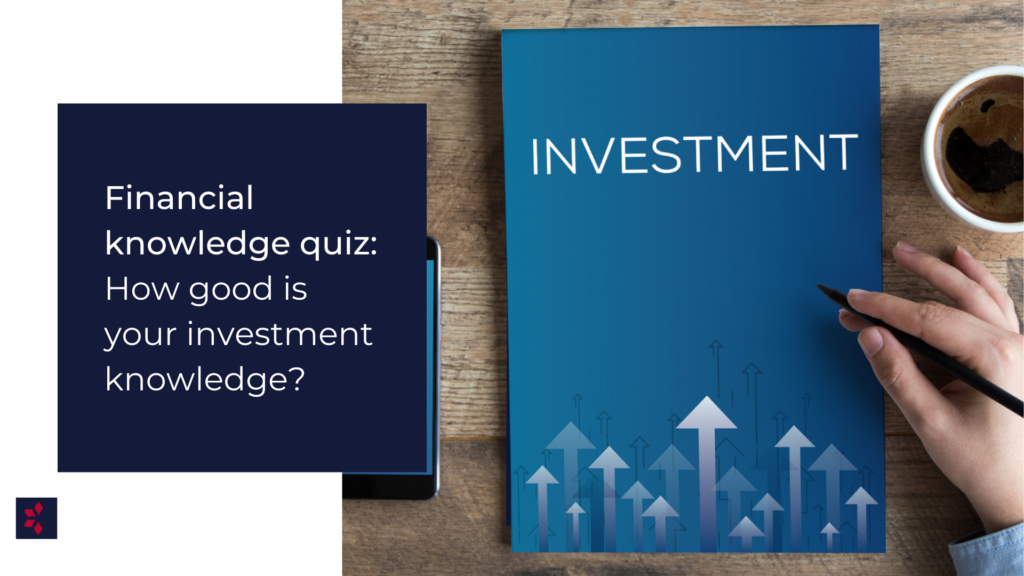Financial Knowledge Quiz: How Good Is Your Investment Knowledge?

Many people think they know a lot about investing in the stock market, but after completing this short quiz you will see if your stock market knowledge really is advanced or whether it is more basic—leaving room to expand your knowledge.
Questions:
1. If you buy a stock on the stock market,…
A) you own a portion of that company.
B) you will receive interest and original investment back at a later time.
2. An investment’s past performance is a good indicator of future performance.
A) True
B) False
3. If you are a investing for the first time and are unsure of what to purchase, invest in the same products as your friends or family.
A) True
B) False
4. What is selling short?
A) Selling shares of a stock prior to the stock price reaching the peak.
B) Selling shares of a stock that is borrowed.
5. Suppose a company announces a 2-for-1 stock split. You own 10 shares of the company. You will have 5 shares after the split.
A) True
B) False
Answers:
1. A. If you buy a company’s stock, you own a portion of that company. There is no guarantee of profits or even that you will receive your original investment back, but you can make money in two ways: 1) from capital appreciation if the stock price rises 2) from dividend payments.
2. B. False. An investment’s past performance is not an indication of its future performance. Nevertheless, past performance can still help you determine how volatile or risky the investment’s returns may be.
3. B. False. Everyone’s financial objectives and risk tolerances are different. You may have a shorter or longer time horizon for your financial goals and may be less or more risk averse than your friends and family. You should make decisions based on your own financial objectives and risk tolerances, not someone else’s.
4. B. Selling short means selling borrowed shares of a stock. You borrow stock from a broker through a margin account and sell it, with the understanding that you must buy back the stock and return it to the broker at a later time. The hope is that the stock price will fall and you can buy it back at a lower price, making a profit. If the stock rises in value, however, you will have to pay the difference to make good on the stock owed.
5. B. False. A 2-for-1 stock split is when a company divides the shares it has into more shares so more people can afford to buy the stock. The total dollar value stays the same and the price-per-share drops. So, if you had 10 shares worth $2 each and there was a 2-for-1 stock split, you will have 20 shares at $1 each after the stock split.
This content is provided for general informational purposes only and does not constitute financial, investment, tax, legal or accounting advice nor does it constitute an offer or solicitation to buy or sell any securities referred to. Individual circumstances and current events are critical to sound investment planning; anyone wishing to act on this content should consult with his or her financial partner or advisor.